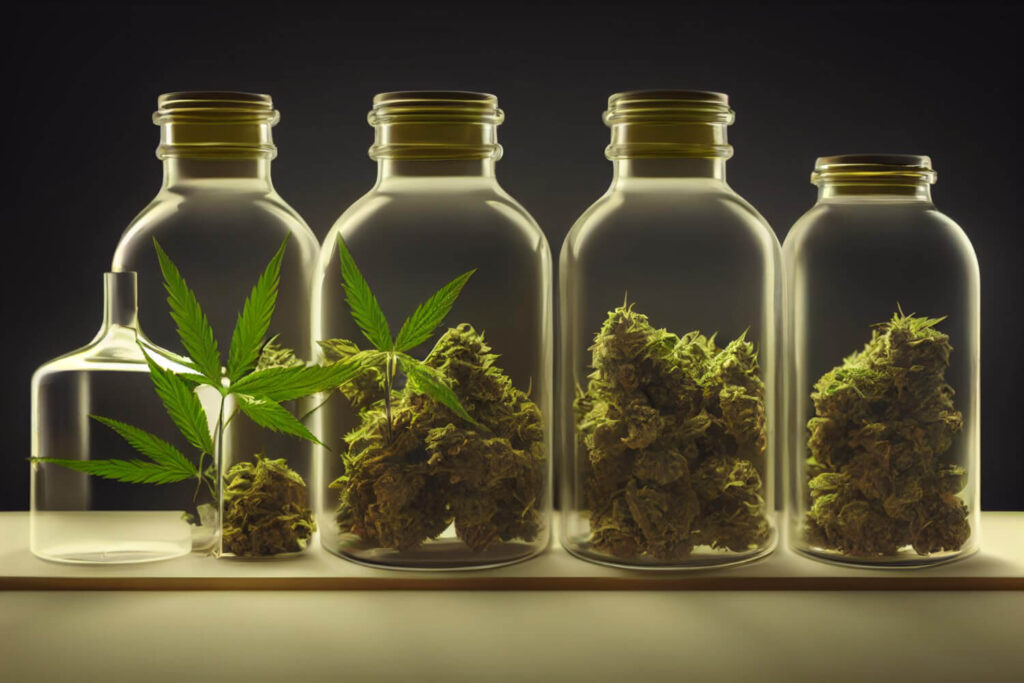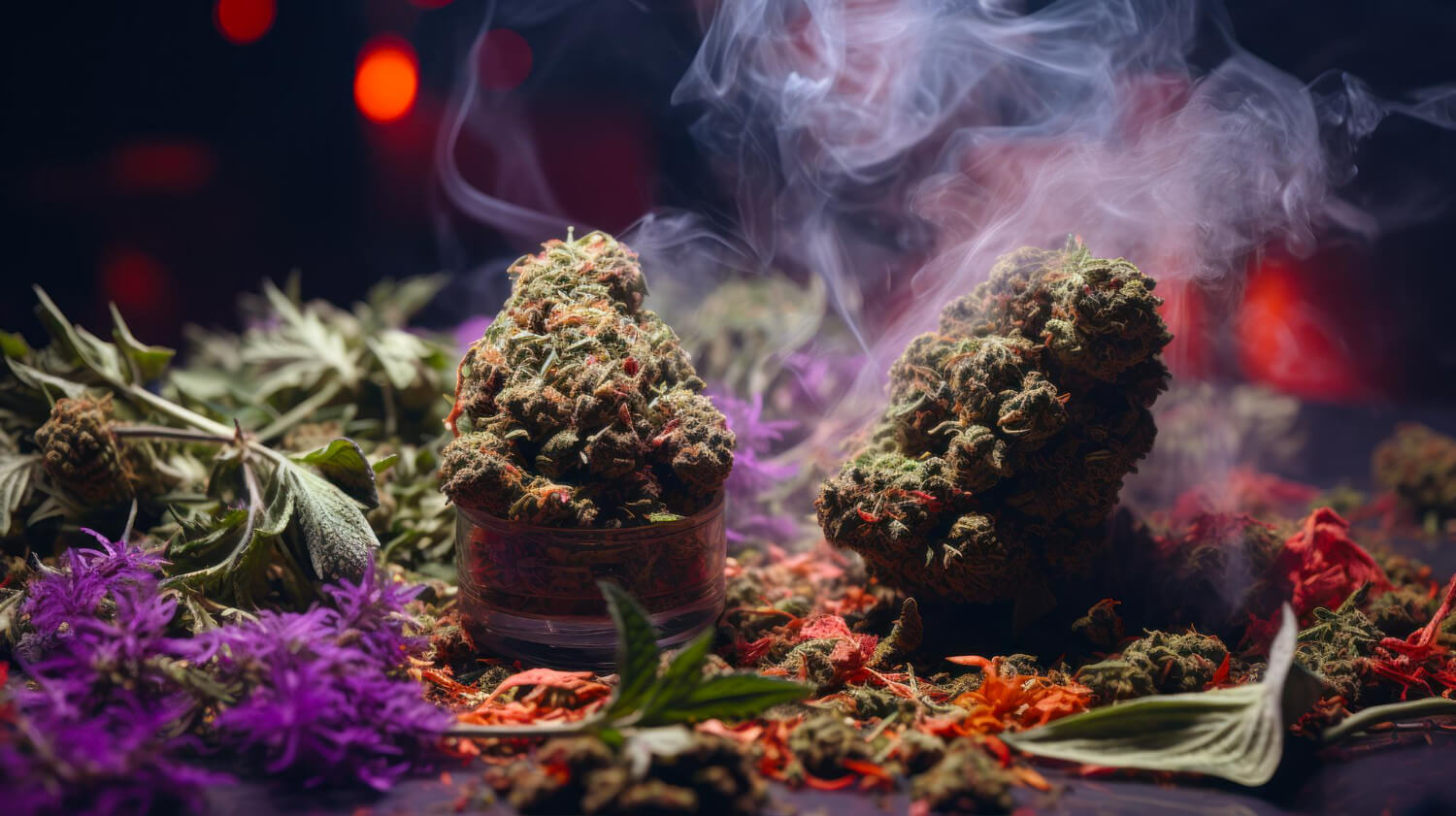For anyone who knows HHC is a synthetic type of Cannabinoid, you must have wondered, ‘How is HHC Made?’ Well, there is no need to wonder over it anymore – for we have all the answers here. Let’s learn more about how HHC is made and how it differs from the other types of cannabinoids.
Understanding the Chemistry Behind HHC
It is important to learn and know why exactly Hexhydrocananbinol is so different from the other types of cannabinoids.
Being scarcely available in nature is one thing, but what is it exactly that makes it so important that it needs to be prepared separately too?
Well, let’s find out once and for all.
Chemical Structure
- HHC is a synthetic cannabinoid, meaning it is artificially created rather than being derived directly from the cannabis plant.
- The chemical structure of HHC is designed to mimic certain properties of natural cannabinoids found in cannabis.
Pharmacology
- The pharmacological effects of HHC are intended to interact with the endocannabinoid system (ECS). This is similar to how natural cannabinoids like THC and CBD interact.
- The ECS is a complex cell-signaling system. It plays its role in regulating various physiological processes, including mood, appetite, sleep, and immune function.
Psychoactive Properties
- Like THC, HHC is reported to have psychoactive properties, meaning it may produce a “high” or altered mental state when consumed.
- The intensity and nature of the psychoactive effects can vary and may be influenced by factors such as dosage and individual sensitivity.
As with any synthetic compound, safety concerns should be thoroughly investigated, and users should be cautious until more research is available.
The Production Process of HHC
HHC is a synthetic cannabinoid. This means that it is artificially created rather than being extracted from the cannabis plant.
Most of this synthetic compound originates from Delta-8 THC through a method known as “hydrogenation.”
The journey begins with Cannabidiol (CBD), which undergoes conversion into Delta-8. Subsequently, a duo of active catalysts is employed to dislodge the double-atom bonds in Delta-8, introducing two hydrogen atoms and transforming them into HHC.
Noteworthy is the deviation in catalysts utilized: while Delta-8 necessitates the involvement of chemicals and solvents, the conversion to HHC employs metals such as palladium and nickel.
The efficacy of the removal of these potentially hazardous substances from the final product is discernible only through third-party laboratory testing.
An important divergence surfaces between Delta-8 and HHC in terms of the latter’s newfound hydrogen attachment, rendering it exceptionally shelf-stable and considerably less susceptible to the detrimental effects of heat and UV light.
This translates to a notable advantage, especially in the realm of edibles infused with HHC, as their potency remains resilient even during prolonged periods on the shelf.
However, it’s important to note that the legal status of synthetic cannabinoids can vary by jurisdiction, and the production, distribution, and use of such substances may be subject to legal regulations.
Comparing HHC with Other Cannabinoids
A brief overview enlisting all the major differences that HHC does or does not have with the commonly available cannabinoids is given below.

HHC (Hydroxyhexahydrocannabinol)
- HHC is noted for its reported psychoactive properties, although the extent and character of these effects can differ.
- A comprehensive understanding of its interaction with cannabinoid receptors and its pharmacological profile requires further in-depth investigation for a detailed comparative analysis.
- In comparison to extensively researched cannabinoids like THC and CBD, HHC has not undergone as much scrutiny, highlighting the necessity for additional studies to unravel its effects and explore potential therapeutic applications.
THC (Tetrahydrocannabinol)
- THC is well-known for its psychoactive effects, producing a “high” or altered state of consciousness.
- It primarily interacts with the CB1 receptors in the central nervous system.
- THC is often regulated and, in many places, is subject to legal restrictions due to its psychoactive nature.
CBD (Cannabidiol)
- CBD does not produce a psychoactive high like THC.
- CBD is associated with various potential therapeutic effects, including anti-inflammatory, anxiolytic, and neuroprotective properties.
- It has a more complex pharmacology, interacting with various receptors, including CB1 and CB2 receptors.
Legal and Safety Aspects of HHC Production
The legal status of synthetic cannabinoids can vary by jurisdiction. Manufacturers must comply with local and national regulations governing the production, distribution, and sale of such substances.
Similarly, The production of synthetic cannabinoids involves working with chemicals and potentially hazardous reagents. It is crucial to adhere to proper safety protocols, incorporating measures such as the utilization of personal protective equipment and ensuring proper ventilation.
Hydroxyhexahydrocannabinol (HHC) distinguishes itself from conventional tetrahydrocannabinol by eluding categorization under Substance I, in contrast to Delta-9 and other THC variants.
Additionally, HHC holds federal legality as it is derived from hemp, aligning with the regulatory framework for hemp derivatives.
Nevertheless, in the context of ongoing bans by state and federal agencies targeting Delta-8 THC and synthetic cannabinoids, certain jurisdictions have extended these prohibitions to include HHC.
This regulatory expansion introduces an element of uncertainty into HHC’s legal standing, underscoring the dynamic nature of cannabinoid regulation at various jurisdictional levels.
Therefore, manufacturers should consider the ethical implications of producing psychoactive substances and adhere to responsible practices. Transparent communication with consumers is important.





